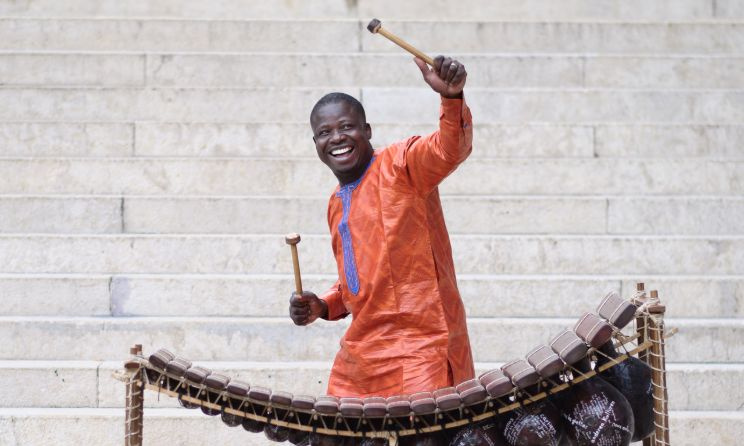Burkinabe balafon maestro Mamadou Diabaté releases new album Seengwa
Burkinabe balafon maestro Mamadou Diabaté dropped his new album Seengwa on 1 April. Released on German label Delicious Tunes, the 10-track collection is available on CD and across all major digital streaming platforms.
 Mamadou Diabaté.
Mamadou Diabaté.
Seengwa is a tribute to the almost forgotten musical traditions of the Sambla people in Burkina Faso, who have developed a language with the xylophone-type of instrument, which they call ‘balafon’.
On the project, the Austria-based Diabaté is backed by the six-piece Percussion Mania band, which takes the listener on a rhythmic journey that blends traditional West African danceable music with jazz and classical music.
A standout track on the project is ‘Duniya Banaba, in which the Balafon language is translated into French for the first time by slam poet Malika La Slamazone, also from Burkina Faso.
Diabaté hails from the Jeli family, which is famed for its music making and storytelling among the Mande people. His professional music education began at the young age of five. He has been described as “a balafon player with more than two hands.” His unique, self-taught technique allows him to play exquisite balafon solos, which create the impression that three balafonists are playing together.
He now has 13 albums to his credit, with his debut Keneya released in 2001. He has also been teaching the Sambala Balafon language at various universities in the US and Canada.
Diabaté is the recipient of multiple awards and has been a Knight of the National Order of Burkina Faso since 2016. He’s worked with numerous musicians of different styles and origins, including France-based Malian piano virtuoso Cheick Tidiane Seck and kora legend Toumani Diabaté, among others. His concert tours have taken him to four continents and to a large number of renowned festivals, including WOMAD (UK), Saalfelden Jazz Festival (Austria), Afrika Festival Würzburg (Germany) and Rain Forest Festival (Malaysia).
To transfer his balafon knowledge to young musicians in his home country, Diabaté opened the Sababu school in his home village of Bobo Dioulasso, where 600 children are currently being taught free of charge. He also continues his collaborative residency work with linguistics professor Laura McPherson at Dartmouth College in the US, exploring the language-music connection.



























Commentaires
s'identifier or register to post comments